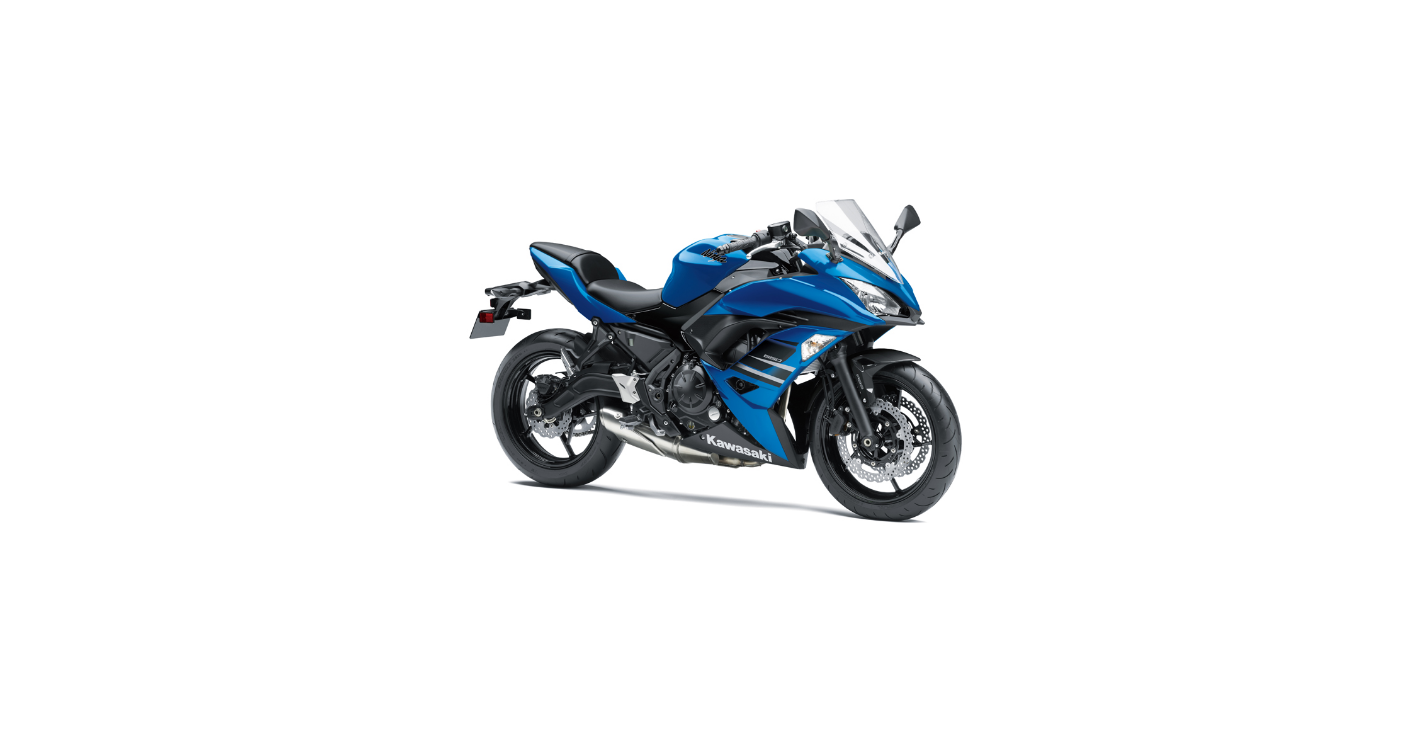2022 Kawasaki NINJA 650 ABS Battery
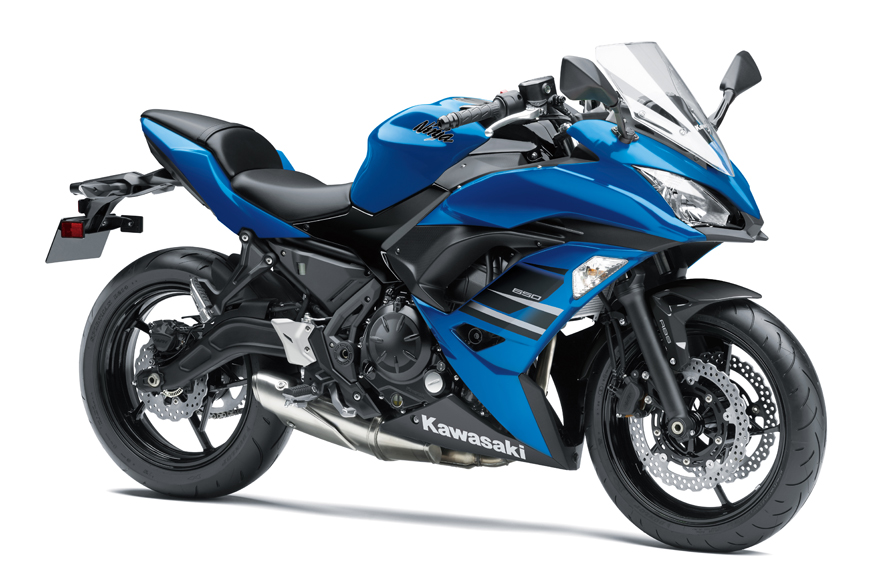
Battery
The battery installed in this motorcycle is a sealed type, so it is not necessary to check the battery electrolyte level or add distilled water.
NOTICE
Never remove the sealing strip, or the battery can be damaged. Do not install a conventional battery in this motorcycle, or the electrical system cannot work properly.

Battery Maintenance
It is the owner’s responsibility to keep the battery fully charged. Failure to do so can lead to battery failure and leave you stranded. If you are riding your vehicle infre- quently, inspect the battery voltage weekly using a voltmeter. If it drops below 12.8 volts, the battery should be charged using an appropriate charger (check with your Kawasaki dealer). If you will not be using the motorcycle for longer than two weeks, the battery should be charged using an appropriate charger. Do not use an automotive-type quick charger that may overcharge the battery and damage it.
NOTE
Leaving the battery connected causes the electrical components (clock etc.) to make the battery discharged, resulting the over discharge of the battery. In this case, the repair or replacement of the battery is not included in the warranty. If you do not drive for four weeks or more, disconnect the battery from the vehicle.
Kawasaki-recommended charge
- Battery Mate 150-9
- OptiMate 4
- Yuasa MB-2040/2060
- Christie C10122S
If the above chargers are not available, use equivalent one. For more details, ask your Kawasaki dealer.
Battery Charging
- Charge the battery following the instructions of your battery charger.
- The charger will keep the battery fully charged until you are ready to reinstall the battery in the motorcycle (see Battery Installation).
DANGER
- Battery acid generates hydrogen gas which is flammable and explosive under certain conditions. It is present within a battery at all times, even in a discharged condition. Keep all flames and sparks (cigarettes) away from the battery.
- Wear eye protection when working with a battery. In the event of battery acid contact with skin, eyes, or clothing, wash the affected areas immediately with water for at least five minutes. Seek medical attention.
WARNING
Battery posts, terminals and related accessories contain lead and lead compounds, chemicals known to the State of California to cause cancer and reproductive harm. Wash hands after handling.
Battery Removal
- Make sure the ignition switch is turned off.
- Remove the rider’s seat (see Seats section in the GENERAL INFORMATION chapter).
- Remove the bolts and clamps.
- Remove the bracket.
A. Bolts
B. Clamps
C. Bracket
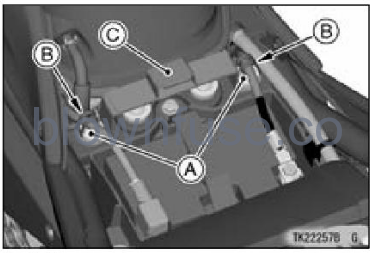
- Remove the bolts.
- Remove the holder.
A. Bolts
B. Holder
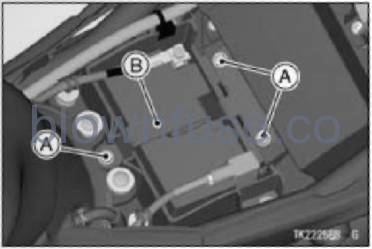
- Disconnect the negative (—) cable from the (—) terminal.
- Slide the red cap from the positive (+) terminal.
- Disconnect the positive (+) cable from the (+) terminal.
A. Red cap
B. (—) Terminal
C. (+) Terminal
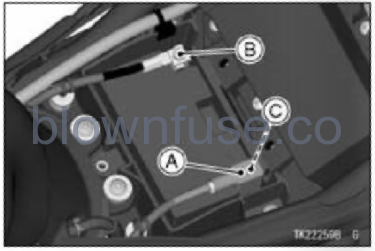
- Take the battery out of the battery case.
- Clean the battery using a solution of baking soda and water. Be sure that the cable connections are clean.
Battery Installation
- Place the battery on the battery case.
-
Connect the positive (+) cable to the (+) terminal, and then connect the negative (—) cable to the (—) terminal.
NOTICE
Installing the negative (—) cable to the (+) terminal of the battery or the positive (+) cable to the (—) terminal of the battery can seri- ously damage the electrical system.
- Put a light coat of grease on the terminals to prevent corrosion.
- Cover the (+) terminal with the red cap.
- Install the removed parts.
NOTE
- Install the clamps sideways so that the clamps are parallel to the bracket.
- Bend the clamps and hold the battery cables with them to prevent the cable from interfering with the edges of other parts.
